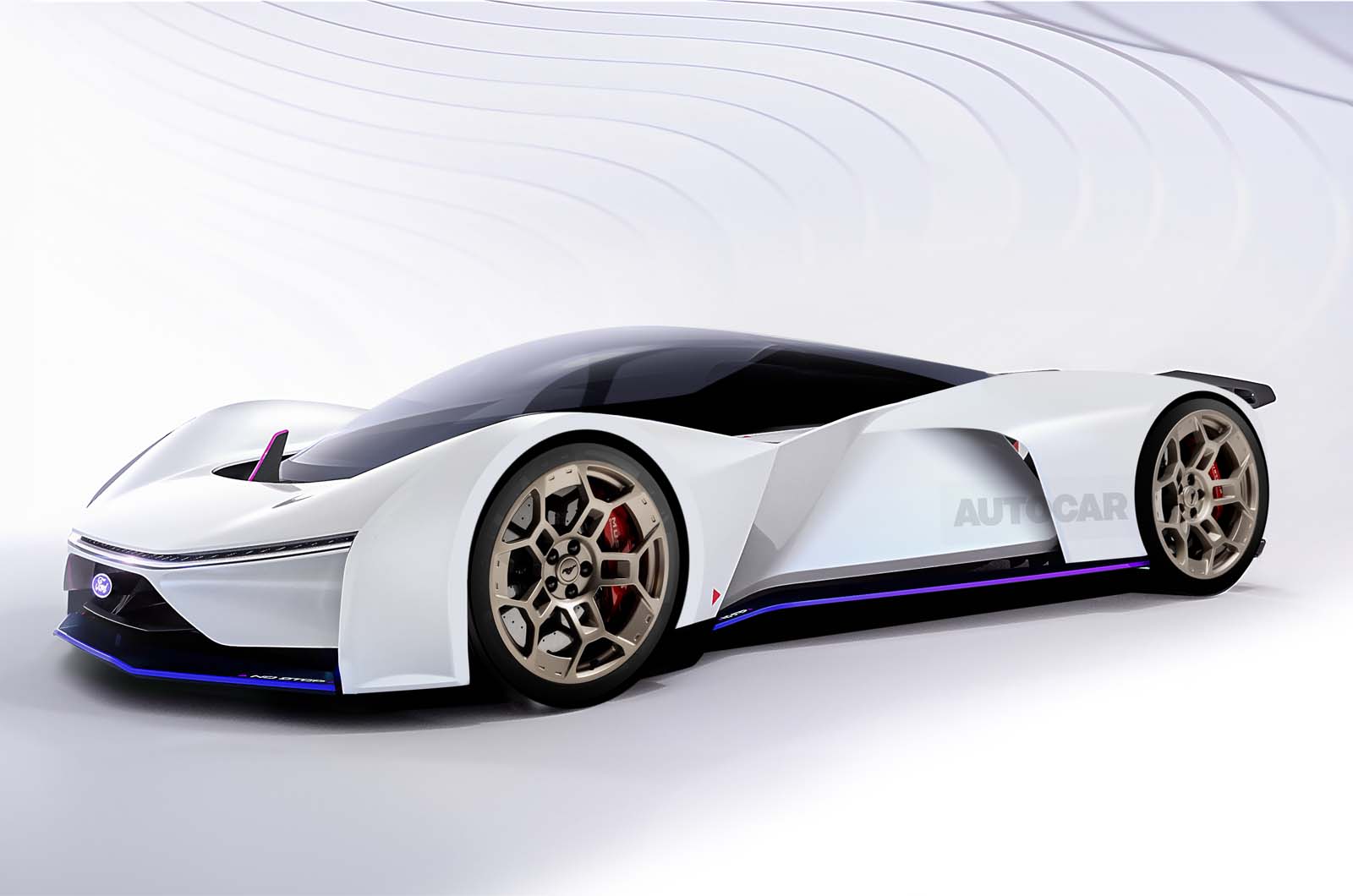“GTE and GT LM converged with GT3 – so now we’ve got one focus for GT racing, which helped us make sense out of having the Mustang GT3 – and the same at prototype [level], which has not truly converged in many ways, because there’s still the LMdH formula, or the LMH formula, but at least there’s the ability to race them together, so that convergence has been great.”
Rushbrook did not say whether Ford would be more likely to opt for LMDh – which mandates manufacturers must use a high proportion of off-the-shelf components, including a specific electric motor arrangement and a chassis supplied by one of four licensed constructors – or LMH, which allows a much greater degree of design and engineering freedom.
“You look at the number of manufacturers involved in it, and some choose LMDh while some choose LMH. So yeah, of course, we’re looking at it, but that doesn’t mean we’re going to tell you what we’ll do,” said Rushbrook.
Ford revealed the P1 hypercar in 2020 as a futuristic, virtual GT racer to take part in online esports racing series. The brand has never voiced any plans to build a running version, but did later build a full-scale concept that could give clues to how a track-bound Ford hypercar might look.
Asked if he would like to see a reprieve of Ford’s successful campaign to beat Ferrari at Le Mans in the 1960s, Rushbrook said only: “We raced them at Le Mans this year and we’ll race them again,” he said, referring to the Mustang taking on the Ferrari 296 in the GT3 category, but he stopped short of alluding to an ambition to bid for the outright win at La Sarthe.
Ford CEO Jim Farley, as a renowned motorsport fanatic and keen racing driver himself, is highly supportive of the company’s racing efforts, which, Rushbrook says, is a boon when it comes to obtaining sign-off for new programmes.

